Premium Only Content
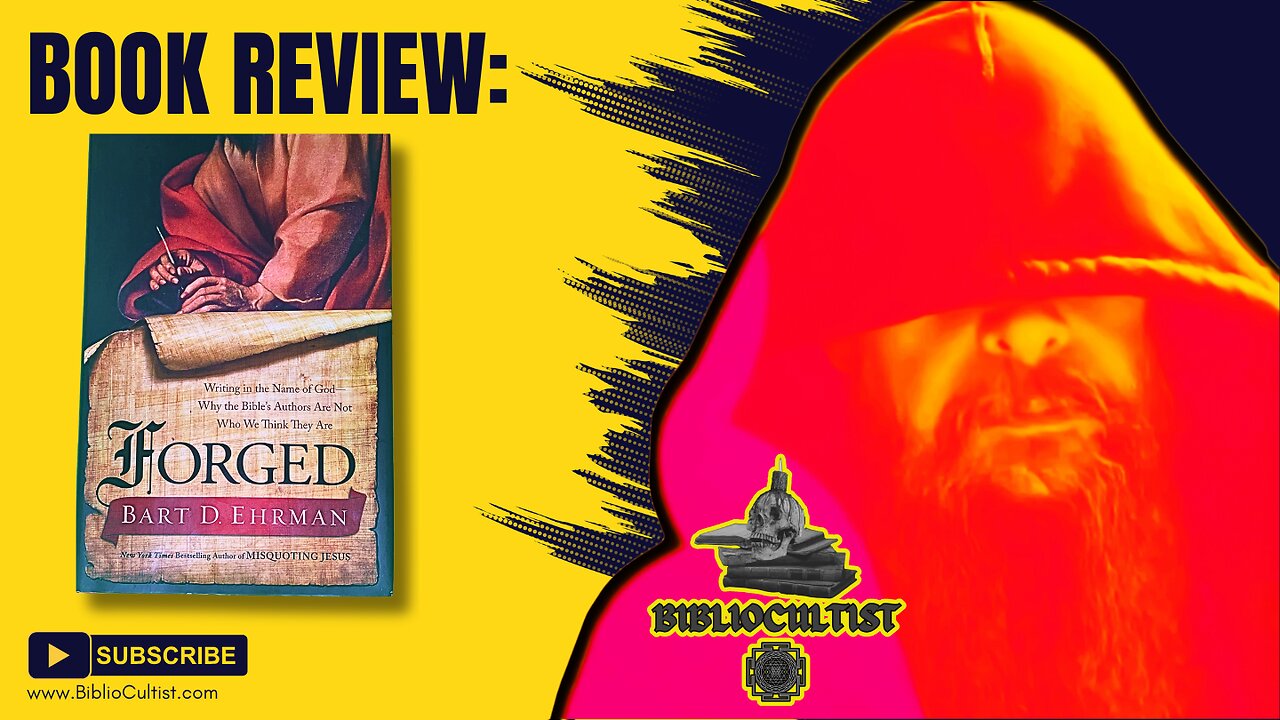
Forgery in the Bible? Exploring Bart Ehrman's 'Forged'
*CHECK OUT MY MERCH: https://bibliocultist.printful.me/*
In this #bookreview #bookrecommendation, I go through Bart Ehrman's book Forged, which examines the authorship of the New Testament books and challenges long-held assumptions about their origins. Drawing from extensive research, he highlights the existence of numerous alternative gospels and acts attributed to apostles in early Christianity, as well as debates among church fathers over which texts should be included in the biblical canon. Ehrman casts doubt on the traditional attributions of many books in the NT and raises questions about the view that the Bible is inerrant and divinely inspired. Ehrman's presuppositions are questioned and analyzed.
*all music and content copyright BiblioCultist.com*
#booktube #books #occultism #Ehrman #Forged #Christianity #OrthodoxChristian #Catholic #evangelical #protestant #heresy #TextualCriticism #atheism
**SHOW NOTES**
1. *Bart D. Ehrman* is a prominent New Testament scholar and historian of early Christianity, currently holding a distinguished professorship at the University of North Carolina at Chapel Hill. A former evangelical Christian turned agnostic, Ehrman is best known for his accessible yet scholarly works exploring the historical Jesus, biblical textual criticism, and the development of early Christian doctrines.
2. Tertullian (c. 155–220 AD) was an early Christian theologian and apologist. Born in Carthage, he was one of the first to use Latin extensively in theological discourse, coining terms like "Trinity" and "person" that shaped Christian doctrine. He later embraced Montanism led to his ostracism by mainstream Christianity.
3. Several early Church Fathers and theologians expressed skepticism or outright rejection of the *Book of Revelation*, questioning its apostolic authorship and canonicity. Notable figures include *Dionysius of Alexandria*, *Eusebius of Caesarea*, and *Cyril of Jerusalem*, who excluded Revelation from his list of canonical scriptures. Others, like *Chrysostom* and *Theodore of Mopsuestia*, also hesitated to fully embrace it, viewing it as obscure or overly symbolic.
4. *Sola Scriptura*, the Protestant belief that Scripture alone is the ultimate authority for Christian faith and practice, is a distinctly modern concept that was virtually nonexistent in the ancient Church. Early Christians relied heavily on oral tradition, the teachings of the apostles, and the authority of bishops alongside Scripture, as seen in writings by the Church Fathers like Irenaeus and Augustine.
5. The *Poetic Edda* and *Prose Edda* are medieval Icelandic texts that preserve the myths, legends, and spiritual worldview of pre-Christian Norse culture. For many modern neo-pagans, these works serve as inspirational sources for reconnecting with ancestral traditions, though they often view the stories symbolically rather than literally.
6. While some pseudonymous writings in the ancient world may have been created with reverential or symbolic intent, the broader evidence suggests that intentional falsification was often recognized as deceptive and ethically problematic. Ancient sources, such as Galatians 6:11, 2 Thessalonians 2:2, and Roman historians like Tacitus, criticize forgeries and highlight their criminal nature.
7. What we call "Judaism" today is not an ancient religion but a modern faith that emerged after the destruction of the Second Temple in 70 CE, much like Christianity. Rabbinical Judaism, centers on the Talmud and rabbinic teachings, developed as a response to the loss of the Temple cult and the rise of competing religious movements, including Christianity.
8. The doctrine of *sola fide*—the belief that salvation is by faith alone, apart from works—is entirely absent in the ancient Christian Church and does not appear until the Protestant Reformation. Early Church Fathers like Augustine, while emphasizing grace, also upheld the necessity of good works and participation in sacraments as integral to salvation. The concept of faith alone was not a teaching of the early Church, which instead reflected a more holistic understanding of faith and works as inseparable.
9. The ancient official canon of Christianity, accepted by both the Catholic and Orthodox Churches for over a millennium, included books such as Tobit, Judith, Wisdom, Sirach, Baruch, 1 and 2 Maccabees , and parts of Esther and Daniel as integral to the Old Testament. These texts were part of the Septuagint and regarded as Scripture in early Christian worship.
10. The process of canonization in Rabbinical Judaism culminated in the establishment of the *Masoretic Text*, a standardized Hebrew Bible that emerged as a response to the destruction of the Second Temple and the need to preserve Jewish identity. Key moments include the *Council of Jamnia (Yavneh)* around 90 CE, where Jewish scholars debated and affirmed the core books of the Hebrew Scriptures, solidifying the 24-book canon.
-
 4:27:17
4:27:17
LadyDesireeMusic
6 hours ago $0.96 earnedDaily White Pill- Music & Chat
5.26K2 -
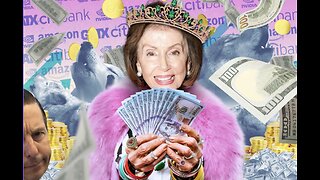 1:33:25
1:33:25
Jeff Ahern
4 hours ago $4.24 earnedThe Saturday Show with Jeff Ahern
14.9K7 -
 LIVE
LIVE
Spartan
2 hours agoStellar Blade Hard Mode with death counter (First Playthrough)
52 watching -
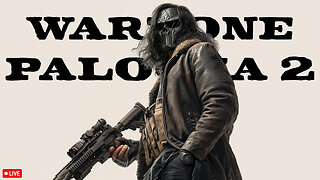 LIVE
LIVE
GrimmHollywood
4 hours ago🔴LIVE • GRIMM HOLLYWOOD • SGT WILKY'S WARZONE PALOOZA 2 •
123 watching -
 20:36
20:36
It’s the Final Round
3 hours ago $4.83 earnedNBA Best Bets & Player Props | Full Analysis & Predictions, FREE Today (Saturday 11/9) November 9th
16.6K2 -
 LIVE
LIVE
The Real Tombliboos - Live Streaming
15 hours ago $1.62 earned🎮 Charity Stream for Extra Life 4 Kids! ❤ Supporting Texas Children’s Hospital ! 🙌
125 watching -
 LIVE
LIVE
Amarok_X
5 hours ago $0.18 earned🟢LIVE | BF6 REDSEC | OPERATION 100 FOLLOWERS | VETERAN GAMER
9 watching -
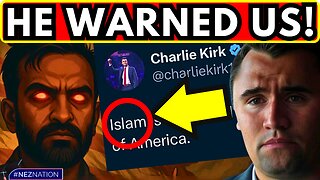 18:08
18:08
Professor Nez
5 hours ago⚠ Charlie Kirk WARNED America about Zohran Mamdani
15.6K74 -
 LIVE
LIVE
GritsGG
4 hours ago#1 Most Warzone Wins 3943+!
22 watching -
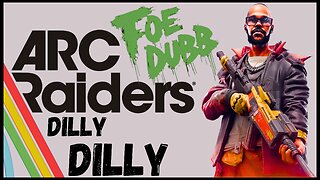 LIVE
LIVE
FoeDubb
4 hours ago🏰KINGDOM MENU: 🎮💻SHORT SESH ON DECK VIBES ON DECK DILLY DILLY!!!
15 watching